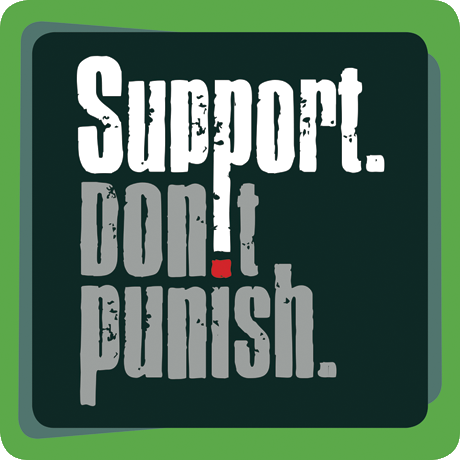Talking About Drugs at Democracy 2015 Event
By Andria E-Mordaunt, involved with Occupy since Oct 15 2011, largely – though not exclusively – as part of the Welfare Working Group (WWG). MSc in Social Policy & Planning from LSE. Former – recovering – drug user. Mother of the wonderful Millie.
On March 13 I went to a gathering at St Mary Abbot’s Church Centre, W8, for the fifth in a series of Drug Policy Cafe consultations. 34 people were there, including a few from known drug policy organisations like Release (which provides free, confidential advice and legal help to drug users and professionals, and campaigns to bring about more compassionate drug policies).
Andreas Whittam Smith, co-founder of the Independent, said that Democracy 2015 had been set up in response to an obvious lack of interest or faith/trust in our current political system, which fewer and fewer people are engaging with. Smith said that the Democracy 2015 movement is concerned with drug policy, caring for the elderly and immigration issues and that they were bringing people together to write a manifesto for a new party which they hope to launch in a couple of years.
Questions were posed and we were sent away to tables to discuss and answer them ourselves.
The first question was: What experience do we have of drugs?
There were seven people on my table. Two of us, both women, were in recovery. One guy said he’d done loads of recreational drugs responsibly. The youngest of us (Emma, facilitating) had done none at all. Mary had been “an adolescent in the 1960s” – the mind boggles(!) – and one of the 2015 team said he’d had a fair bit to do with hash (way back when)…
The next question was: What do we know about drugs; and what do we want to know about drugs?
What people wanted to know included:
a) Was there any significant correlation between the use of ‘skunk’ and schizophrenia? The answer that came out here was “not really unless a person is already mentally/emotionally vulnerable”. There was discussion about the components of cannabis: CBD and THC appear in different ratios in different forms of hash and weed and it looks like CBD is ‘better’ for you than THC. THC levels are between 2% and 15% these days. Hash with higher levels of CBD leads to less psychosis. High levels of THC seem to indicate higher levels of addiction and withdrawal. I asked whether these “withdrawals” were largely psychological and the answer was mostly yes, but not entirely: for example, of a group of seven, two had more physical effects such as insomnia.
b) Who are the people who generally get messed up on drugs? The answer that came back here was that the majority appear to be people who have experienced more trauma and abuse (sexual, emotional, physical) in childhood. The young people’s table categorically said they believed there is a clear link between drug use and socio-economics. They didn’t say what they meant exactly but one thing is clear – increasing numbers of young people are selling illegal drugs to subsidise their studies and their lives in general. One young man commenting about the social context of people’s use said that university students generally do not seem to get in a mess with drugs. That seemed like an intelligent comment, although I did get in a mess with drugs at uni – I used to hide in the loo and shoot up, which is not the kind of thing one is going to share with all the rest of the students! I didn’t want to be reported to Mr or Ms Authority, nor did I wanna go to jail…
Another intelligent comment which sadly does not get answered much: All those people who currently run jails, across the world, housing non-violent drugs prisoners; all those cops and customs and excise guys, all those lawyers and God knows who else who make their living out of drugs being illegal… What will they do instead, if we achieve more compassionate policies? I could answer that one but something tells me I might get laughed at.
There was one comment that in relation to prevention, there does not seem to be much evidence that education/prevention works. By the time most people are looking vulnerable to addictive use, it is often too late to stop us/them.
At the end we all got to vote on what our different tables thought was the most important issue that needs addressing:
1) That the drugs portfolio should be moved from the Home Office to the Department of Health
2) That research about drugs needs to be more honest i.e. that drug companies who have the agenda of selling their drugs should not be the funders of research, as this has been seen to skew results.
3) The need for decriminalisation, regulation and taxation of all drugs.
 4) The huge need to improve attitudinal changes around those who use drugs and support ill people rather than further punish them. (History has showed us clearly that addicted populations are generally very good at punishing themselves; they really don’t need much help with that.)
4) The huge need to improve attitudinal changes around those who use drugs and support ill people rather than further punish them. (History has showed us clearly that addicted populations are generally very good at punishing themselves; they really don’t need much help with that.)5) One young man talked about the legislative change needing to come as a market model…..
Number three won that vote with 24 votes.
Number four came second with 22 votes.
I worried deeply that 22 people voted for a market model of legal regulation and control, even though that is where we are at now.
I believe there is an urgent need to end the global ‘War on Drugs’ to reduce the deaths, diseases, crimes and corruption that goes along with it to date (aka collateral damage). Also, in my opinion – nobody said this at the event, although it was alluded to – the media generally needs to be ignored around drugs unless there is a clearly well researched piece that is NOT scaremongering.
By Andria






